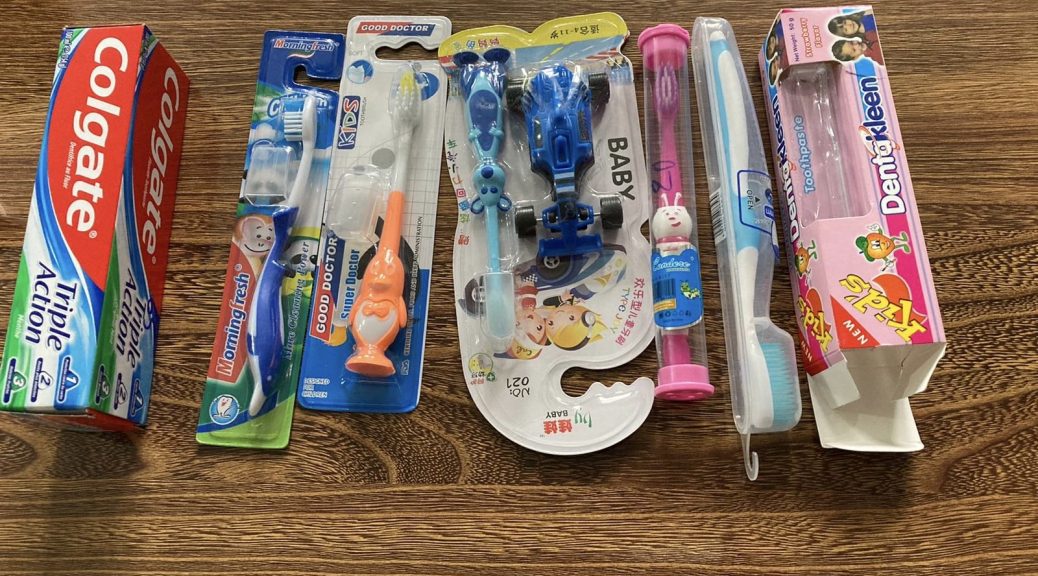When toothbrushes are made for elephant jaws
We have been running a pre-primary education program for five years now, and since last year we have added a community class program to our portfolio of educational projects. In total, we have equipped around 100 classrooms with educational, recreational and hygiene materials.
Feedback from the teachers on the material used is essential.
At the beginning of each school year, we adjust and replace deteriorated and unusable material, and renew the children’s personal hygiene kits. The teachers inform the project coordinators of their observations on the material used during the school year. Some imported games, toys and stationery sometimes do not meet the expected quality standards: glue or pens that dry out too quickly, pencils that are too brittle, solid modelling clay, toys that do not survive a few days of use are all comments that alert us.
Feedback from teachers about the inappropriate size of toothbrushes, pointing out that they were made for “elephant jaws”, also strongly challenged the way we shop, no longer content to blindly follow material lists from consortia involved in the distribution of educational programs.
Shopping tests worthy of the largest consumer organizations
Nai Qala’s hallmark is to promote quality educational programs with low-cost local solutions, which may not be realistic combined with products from well-known international brands. In order to ensure that it has the right equipment at the right price, Nai Qala has set up a system for testing equipment to complement its purchasing policy, which requires a comparison of prices from at least three suppliers. This spring, in preparation for the start of the new school year, the Nai Qala office team formally tested dozens of pens, pencils, erasers, glues and other items; putting them through durability and strength tests, checking the contents of the reservoirs: how many hours of writing does a pen do? How many shocks can a pencil survive? Is the glue pot filled to the top? Each model was evaluated according to objective criteria and only the best was retained.
As regards the size of the toothbrushes, the purchasing manager was responsible for researching the market and having colleagues test suitable models. After several days of testing, the model that will appear in the classrooms was selected: a simple, solid toothbrush that will reach every corner of a 6-year-old’s mouth.
Almost everything is available in the markets of Afghanistan’s capital, but not always to international quality standards: a well-informed consumer is better prepared. The young beneficiaries of Nai Qala’s educational programs will be able to count on material adapted to their use.

